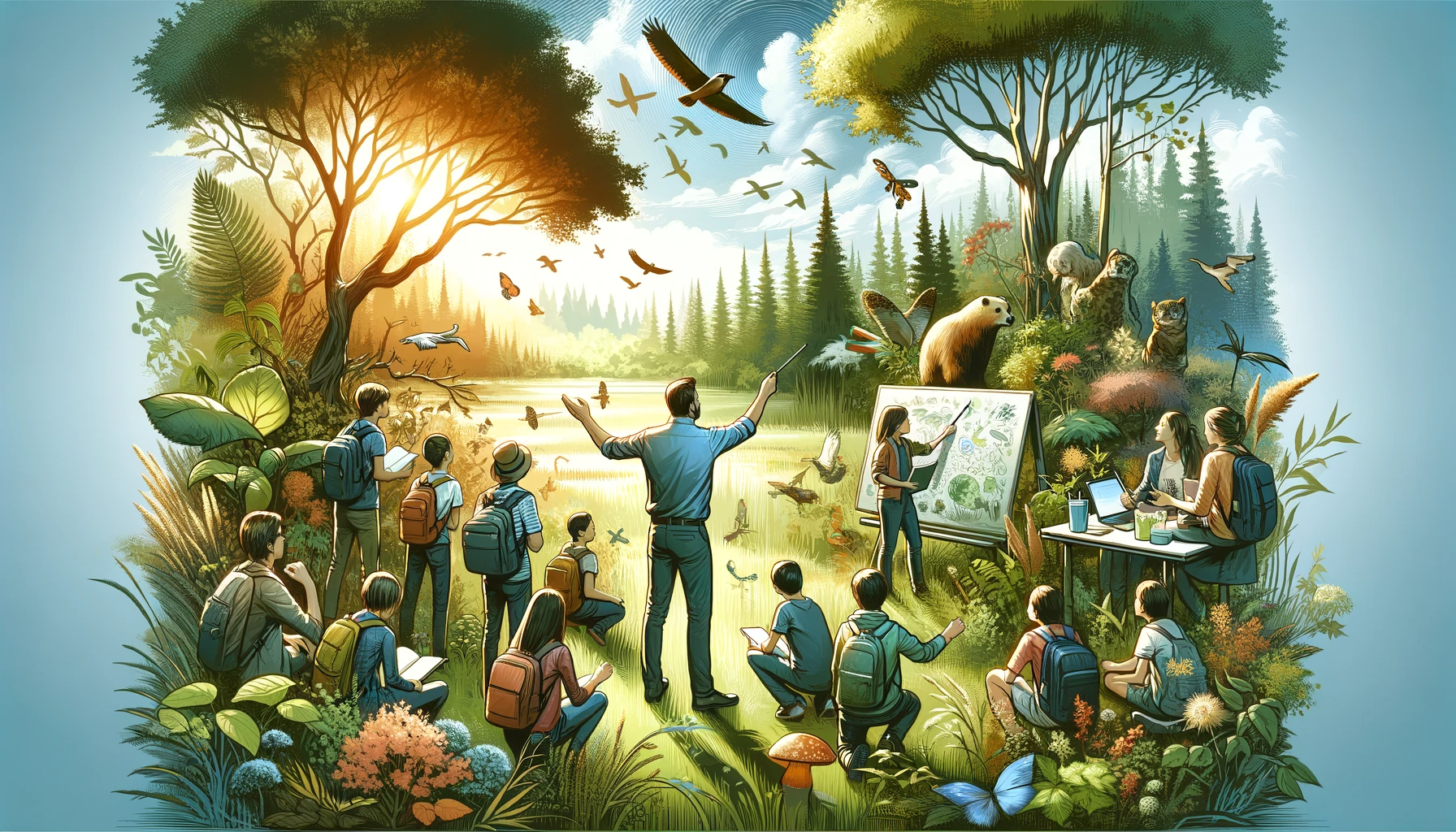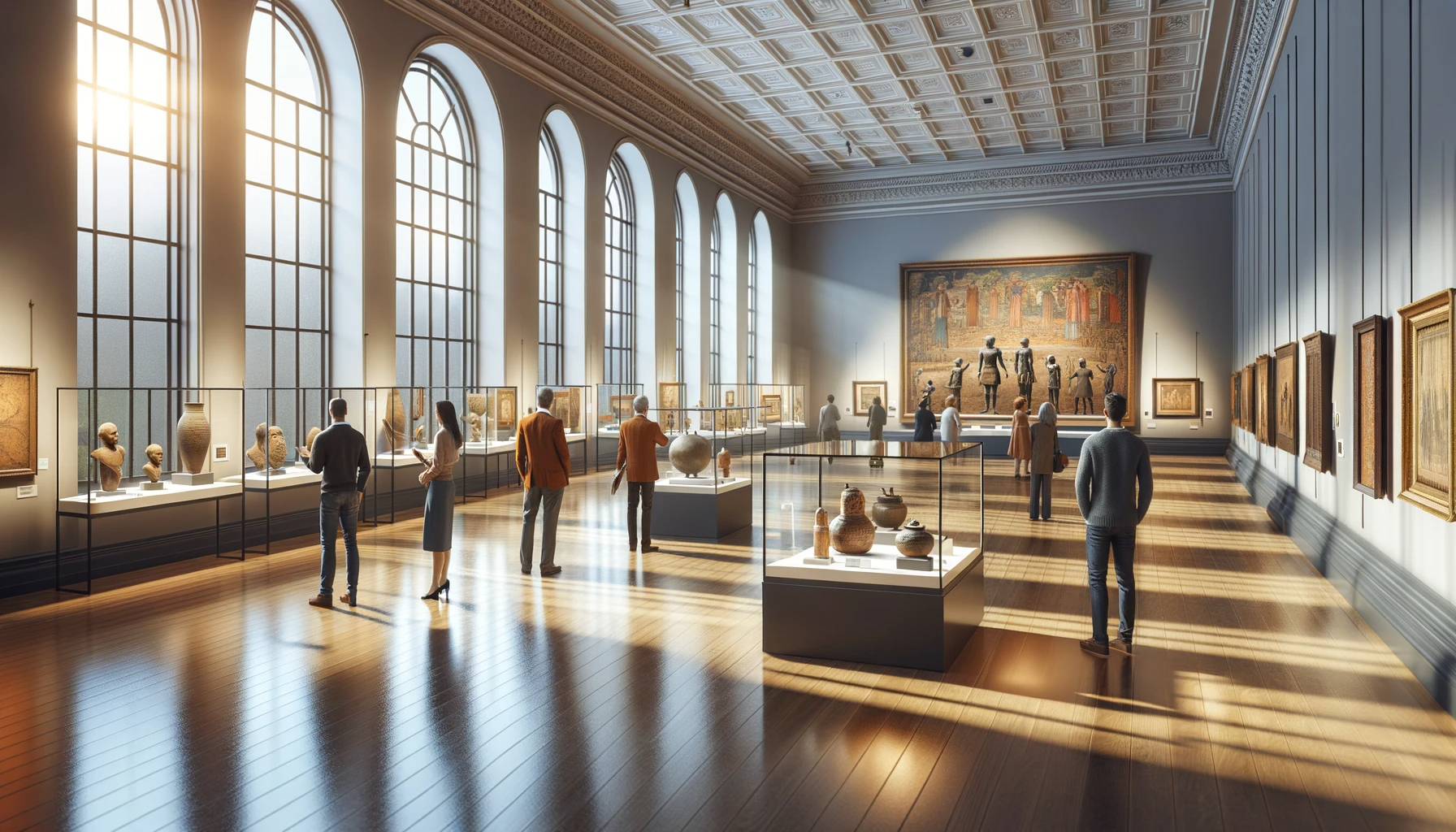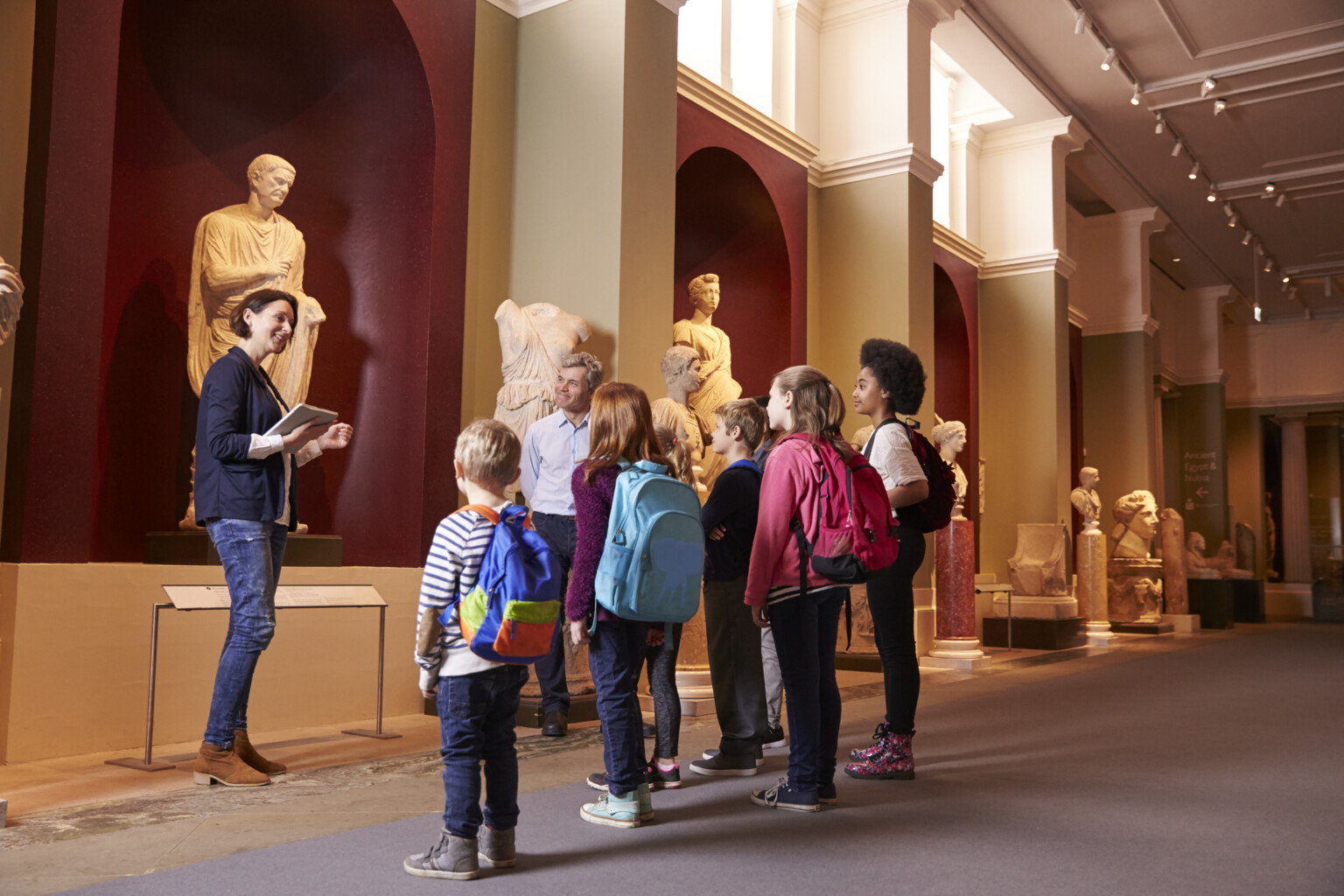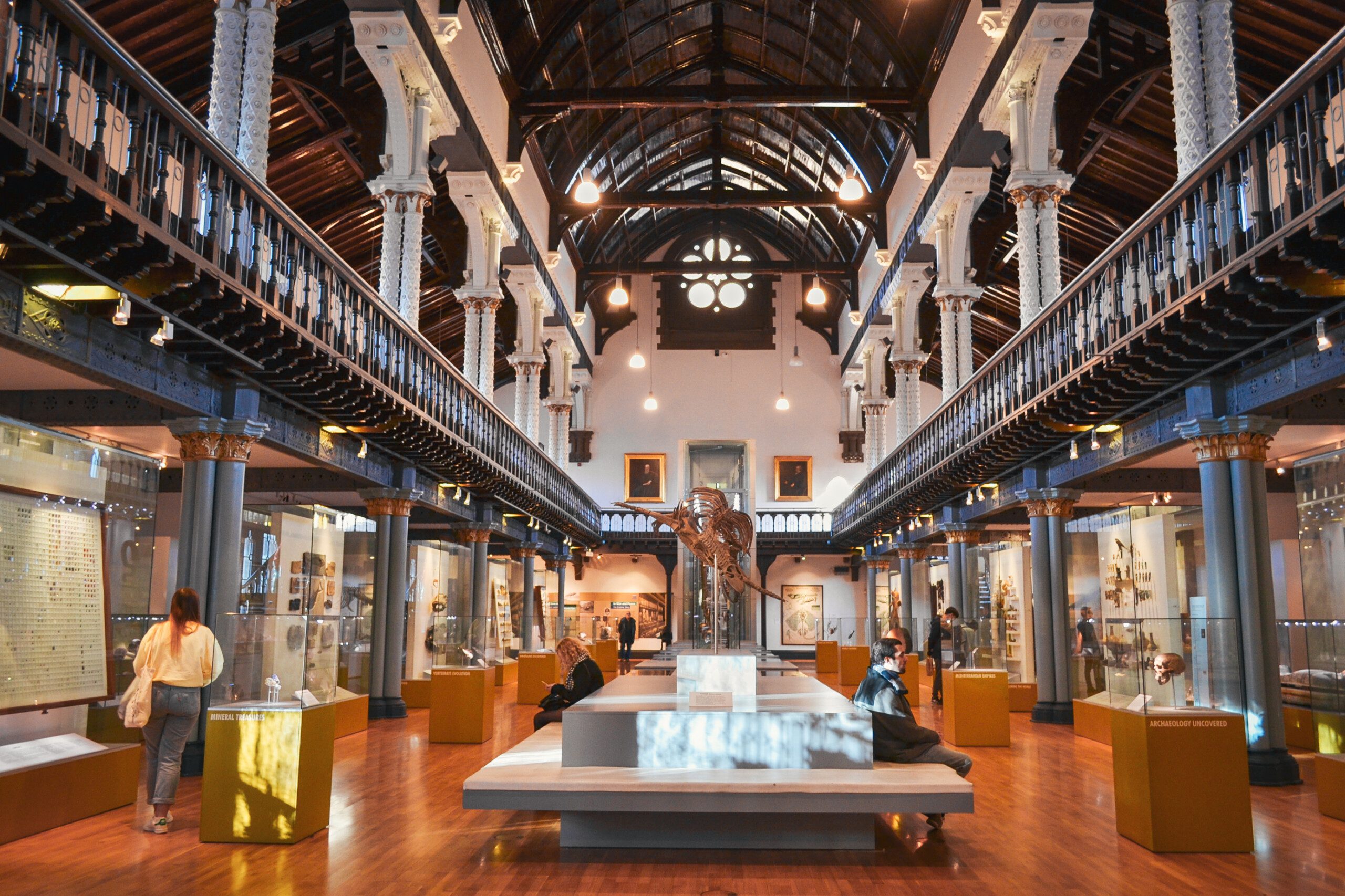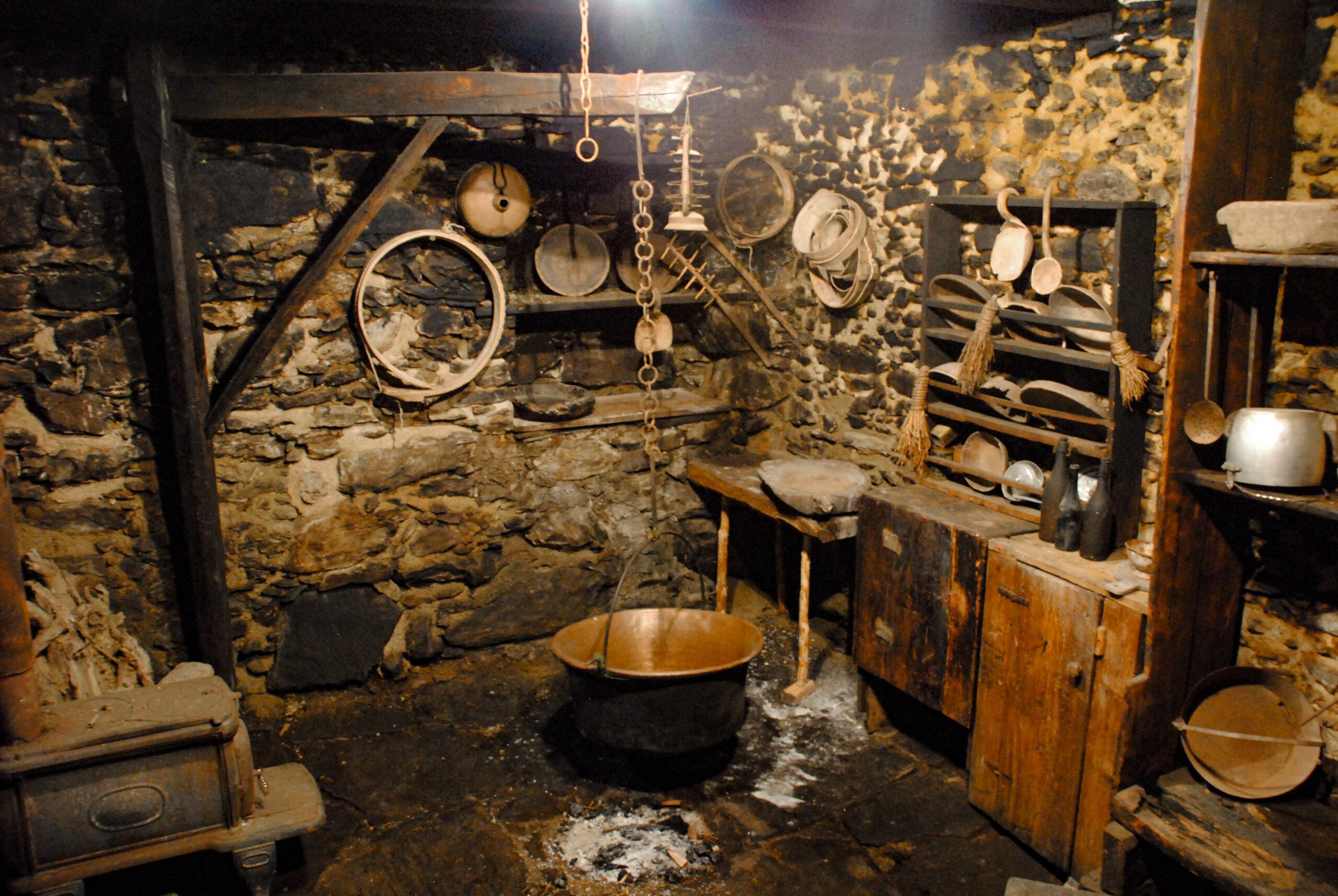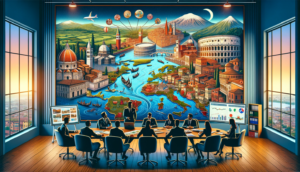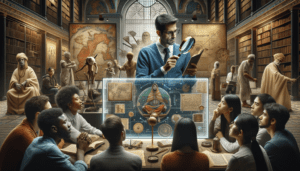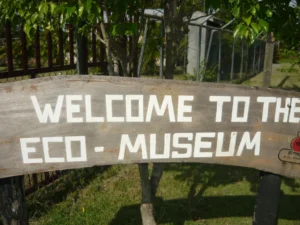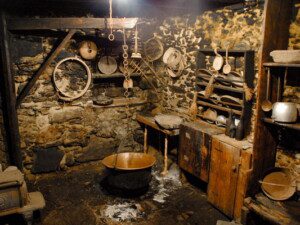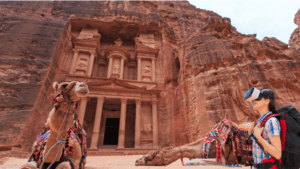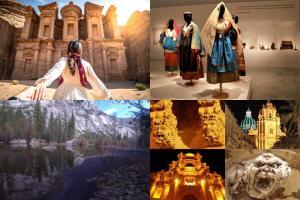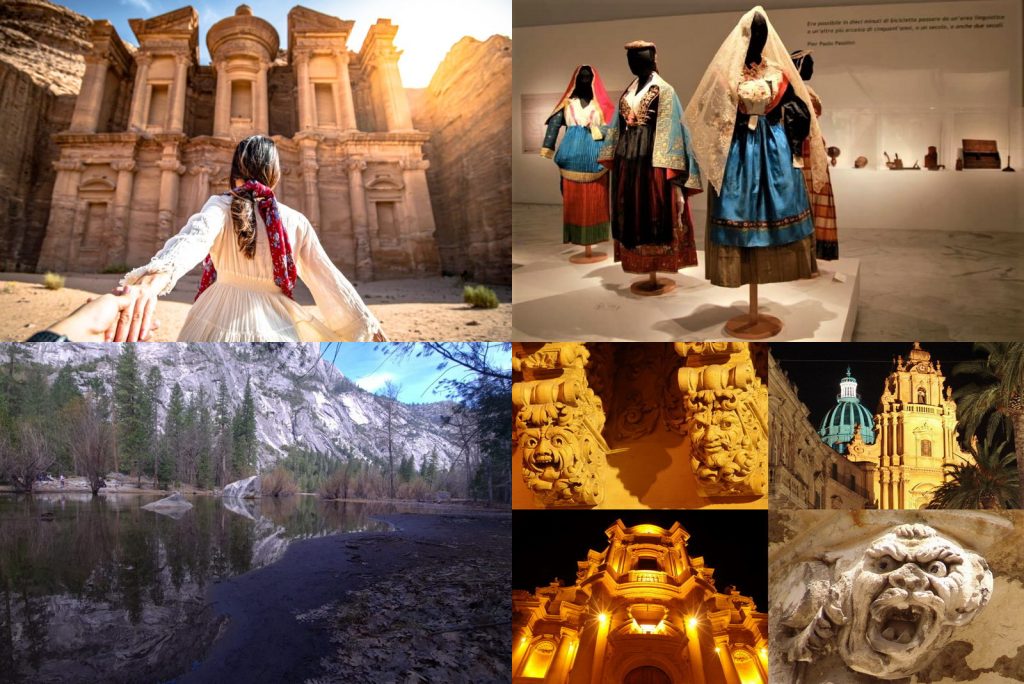Museum Educator: Reference scheme
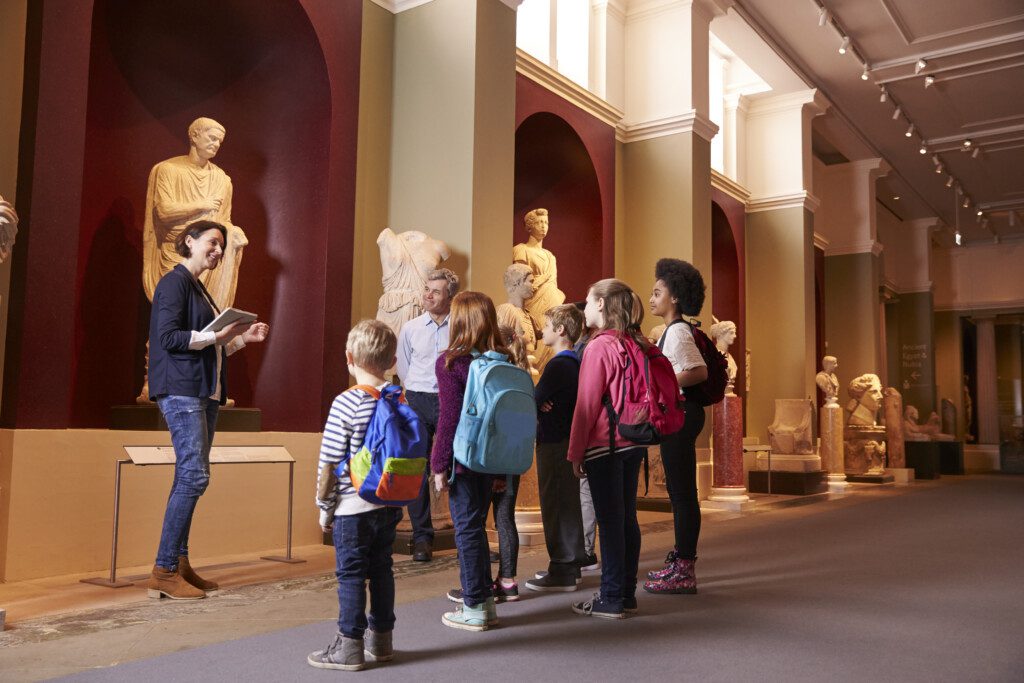
Scheme C) Unregulated profession built without regulatory references.
The reference scheme is based on the 'modelSkills Cycle' and is in line with the 'Tourism, Arts, Heritage Competence Framework (TAH-CF)'. the TAH-CF is defined in accordance with the European Qualifications Framework (EQF), the Recommendation of the European Parliament and of the Council 2009/C 155/02 (ECVET) and the APNR (Non-Regulated Professional Activities) scheme adopted by UNI for the technical standardization of unregulated professions.”
The scheme is subjected to an initial public survey available to all stakeholders in the cultural tourism supply chain in order to collect comments and contributions useful for improving its contents. All interested parties are invited to improve the scheme by sending their contributions to info@aiptoc.it
Description
The figure of the Museum Educator can be divided into three different profiles:
- Junior museum educator: Educator with the necessary skills to deliver training content in the museum sector. (EQF level V)
- Senior museum educator: Educator with the skills necessary to design and deliver training content in the museum sector (VI level EQF)
- Expert museum educator: Educator with the necessary skills to design, deliver training content and carry out study and research activities in the museum sector (VII EQF level)
The Museum Educator is a professional figure, with a high intellectual content and complexity, who possesses specific skills to carry out the following activities:
Activities relating to the museum heritage:
- individuation,
- Knowledge,
- Interpretation,
- Documentation,
- Enhancement,
- Training,
- Education
- Promotion of sustainable development
The Museum Educator can carry out his activity both in public and private bodies and as a self-employed person, also as an Expert/Consultant.
The Museum Educator has a profound knowledge of the disciplines relating to museum collections and is able to use their knowledge with the aim of museum education.
Standards of Reference
- European Qualification Framework (EQF)
- Recommendation 2009 / C 155/02 (European Credit System for Vocational Education and Training - ECVET)
- Law 4/2013 relating to non-regulated professions
Specific tasks and activities
Description of tasks
Specific tasks and activities
- T1: Evaluate training needs and user expectations for the reference sector
- T2: Analyze the Reference Context
- T2.1 Identify and analyze stakeholders (who are the interested parties)
- T2.2 Identify and Analyze sector legislation
- T2.3 Identify and analyze the relevant museum heritage
- T3: Identify purpose, objectives and typology of the educational service (characteristics of the service)
- T4: Designing the educational service
- T5: Communicate the educational service
- T6: Realize the educational service
- T6.1: Planning educational service activities and procedures
- T6.2: Managing economic resources (budget)
- T6.3: Manage human resources (staff)
- T6.4: Ensure the correct performance of the educational service
- T6.5: Verify and check compliance with applicable legislation in force
- T6.6: Monitor and evaluate the educational services provided
- T7: Improving the educational offer (continuous improvement)
- T8: Carry out study and research activities in the field of museum education and in related and related disciplines
The EQF level depends on the profile
Junior Educator (V level EQF): Has the necessary skills to carry out tasks T1, T2, T3, T6
Senior Educator (VI level EQF): Has the necessary skills to carry out tasks T1, T2, T3, T4, T5, T6, T7
Expert educator (VII level EQF): Has the necessary skills to carry out tasks T1, T2, T3, T4, T5, T6, T7, T8
Skills, Knowledge and Autonomy and Responsibility (Skills)
Note: The competences necessary for a profession, which include skills and knowledge, constitute a dynamic whole. These may vary depending on specific territorial contexts and are subject to changes over time due to factors such as technological evolution or other sectoral developments. Therefore, the examples of skills and knowledge presented here are to be considered purely indicative and not exhaustive, and will be subjected to constant revisions and updates.
The specific tasks and activities are listed below, associating, for each specific task or activity, the requisites of knowledge, skills and competences (autonomy and responsibility).
T1: Evaluate the training needs and expectations of real and potential users for the reference sector
Ability
- SQ1: Analysis skills
- SQ2: Ability to synthesize
- SQ10: Analyze the educational requirements of users/beneficiaries
- ST23: Use Territorial Marketing tools
Additional required knowledge:
- KQ2: Quality Management - Factors, indicators and standards of quality in services
- KQ22: Quality Management - Factors (dimensions) and quality indicators
- KS29: Territorial Marketing
- KQ33: Quality Management - Stakeholder Requirements Analysis
- KT26: Methods and tools for analyzing training/educational needs
T2: Analyze the Reference Context
T2.1 Identify and analyze stakeholders (who are the interested parties)
Ability
- SQ1: Analysis skills
- SP24: Identify the Strategic Stakeholders
Additional required knowledge:
- KS125: Organizations and Institutions operating in the Environmental and Sustainability fields
- KS24: Destination Management Organization (DMO)
- KTN12: The protection and supervisory bodies
T2.2 Identify and Analyze sector legislation
Ability
- SQ1: Analysis skills
- SP1: Identify and evaluate the applicability of the rules for the protection and use of the Cultural and Landscape Heritage
- SP2: Identify and evaluate the applicability of the legislation on safety in the workplace with relevance to its reference sector
- SP4: Identify and evaluate the applicability of the Tourism Legislation
- SP42: Identify and evaluate the applicability of the legislation on privacy
- SP87: Identify and evaluate the applicability of the Environmental Protection and Sustainable Development Legislation
Additional required knowledge:
- KS39: The legislation for the protection and use of Cultural Heritage
- KS40: The criteria for the protection of cultural heritage
- KS41: The various levels of protection
- KS43: Landscape assets
- KS47: The legislation on privacy and the tourism sector
- KS48: The European Regulation 2016/679
- KS49: The legislation on safety in the workplace in the tourism sector
- KS52: Consumer protection legislation
- KS106: Tourism Legislation
T2.3 Identify and analyze relevant museum heritage
Ability
- SQ1: Analysis skills
- SQ2: Ability to synthesize
- SP72: Know and analyze the anthropic context of one's own territory
- SP74: Know and analyze the endogenous cultural attractions of one's own territory
- SP92: Documentary Research (applying techniques and methodologies)
- SP94: Knowing how to analyze the territorial context from a cultural and historical anthropological point of view
- SP100: Local cultural identities (Identify, analyze, interpret, document)
- SP101: Museum heritage (Identify, analyze, interpret, document)
- SP102: Knowing how to analyze the territorial context from a museum point of view
- SP105: Cultural Heritage relevant to the museum collection (Identify, analyze, document, relate, contextualize, develop historical-comparative relationships)
Based on the type of (eco)museum, the general skills indicated must be particularly in-depth in the specific sector to which they belong which can be, for example: Identifying, analysing, documenting, relating, contextualising, developing historical-comparative relationships, identifying the relevance and the historical-cultural context of origin of the museum assets belonging to one or more of the following (non-exhaustive list):
- SP29: Unesco Heritage
- SP30: Naturalistic Heritage
- SP31: Historical, Artistic and Archaeological Heritage
- SP32: Intangible Heritage
- SP33: Food and wine heritage
- SP53: Demoethnoanthropological heritage
- SP54: Paleoanthropological Heritage
Additional required knowledge:
- KS352: Elements of Tangible and Intangible Cultural Heritage
- KS145: Document management principles, methods and techniques
- KS232: Environmental Protection and Sustainable Development Regulations
- KS223: Territorial context from a cultural and historical anthropological point of view
- KS236: Museology and New Museology
- KS249: Interpretation of Cultural Heritage
- KS250: Lighthouse Convention
- KS263: Local cultural identities
- KS265: Territorial Bodies and Institutions
- KT6: IT tools for online communication and research
General knowledge of Cultural Heritage must include both tangible and intangible assets and be particularly in-depth in the sectors relating to museum collections. Below is an illustrative and non-exhaustive list
- KTU Unesco Heritage
-
- KTU1: Unesco Conventions on Material Cultural Heritage
- KTU2: The World Heritage List (WHL)
- KTU3: UNESCO Institutions for Cultural Heritage
- KTU4: World Heritage sites at risk
- KTU5: The Proposal List of World Heritage
- KTU6: The procedures for the recognition of Unesco sites
- KTU7: Guidelines for drafting and implementing management plans
- KTU8: Models for the implementation of Management Plans
- KTU9: Sites on the World Heritage List
- KTU10: Unesco Global Biospheres and Geoparks
- KTU11: Creative Cities Network
- KTU12: Unesco Conventions on Intangible Cultural Heritage
- KTU13: The World List of Intangible Cultural Heritage
- KTU14: Other Programs for the protection and promotion of Cultural Heritage
- KTN Natural Heritage
-
- KTN1: Protected Natural Areas
- KTN2: Parks and Nature Reserves
- KTN3: Nature reserves
- KTN4: Natura 2000 network
- KTN5: Sites of Community Interest (SIC)
- KTN6: Special Protection Areas (SPAs)
- KTN7: Special Areas of Conservation (SAC)
- KTN8: The Wetlands
- KTN9: The Geosites
- KTN10: Management tools for protected natural areas
- KTN11: Landscape Plans
- KTN12: The environmental protection and supervisory bodies
- KTN13: Strategies for Biodiversity
- KTI Intangible Heritage
-
- KTI1: Demo-ethno-anthropological heritage (DEA)
- KTI2: Registers of Intangible Heritage
- KTI3: Religious Rites and Festivals (Celebrations)
- KTI4: Crafts, Knowledge and traditional working techniques (Knowledge)
- KTI5: Traditions and Oral Expressions (Expressions)
- KTI6: Performing Arts
- KTI7: Places of Memory and Symbolic Places
- KTI8: Places of Myth and Legends
- KTI9: Places of the Sacred
- KTI10: Places of historical events
- KTI11: Places of historical personalities and culture
- KTI12: Historical places of work
- KTI13: Places of the literary story
- KTI14: Places of television and film storytelling
- KTI15: Ethno-anthropological museum heritage
- KTI16: Ethnomusicological Heritage
- KTI17: Literary parks
- KTS Historical, Artistic and Archaeological Heritage
-
- KTS1: Archaeological Tourism
- KTS2: Parks and Archaeological Sites
- KTS3: Paleolithic, Mesolithic and sites of tourist interest
- KTS4: Neolithic, Metal Age and sites and sites of tourist interest
- KTS5: Main architectural styles
- KTS6: Tourist sites from the Greek and Roman times
- KTS7: Testimonies of Byzantine and Lombard civilization
- KTS8: Sites of tourist interest from the Norman period
- KTS9: Baroque and Rococo
- KTS10: Neoclassical Architecture
- KTS11: The Testimonies of Liberty
- KTS12: The historic villages
- KTS13: The Museum Heritage
- KTE Food and Wine Heritage
-
- KTE1: Typical products
- KTE2: Food and wine tourism
- KTE3: The quality certification of DOP, IGP and TSG food products
- KTE4: Traditional Agri-Food Products
- KTE5: Other forms of recognition of typical products
- KTE6: The wine roads
- KTE7: The production specifications
- KTE8: Organic products
- KTE9: Farmhouses
- KTE10: Quality rural and agri-food districts
T3: Identify purpose, objectives and typology of the educational service (characteristics of the service)
E.g. education programs and campaigns linked to museum disciplines, seminars, sustainable development education campaign, museum itineraries for educational and ecotourism purposes, etc.
Ability
- SP93: Classify and identify the various types of educational paths
Additional required knowledge:
- KS222: Characteristics of museum educational services
- KS221: Museum educational courses (classification and basic concepts)
T4: Designing the educational service
Ability
- SQ1: Analysis skills
- SQ11 Design processes and services
- SQ12: Implement, document and classify core processes
- SQ14: Propose process changes to facilitate and rationalize improvements
- SP45: Develop training/information projects in the (eco)museum sector
- SP85: Analyze the Cultural Context
- ST23: Use risk management tools
Additional required knowledge:
- KQ11: Quality Management – Design and development
- KS85: European, national and regional policies on museums and sustainable development
- KS99 Risk Management
- KS112: Teaching techniques and methodologies
- KS206: Competent services and authorities in the event of accidents or sudden illnesses
- KS235: Museum educational courses
- KS236: New Museology
- KS239: Characteristics of (eco)museum educational services
- KT5: Basic IT and telematic tools
- KT16: Corporate Organizational Models
- KT18: Design and Planning of Educational/Training Paths
T5: Communicate the educational service
Ability
- SP8: Develop a Communication Plan for the reference sector
- SP11: Identify the web technologies to be used for territorial marketing
- ST1: Ability to communicate
- ST6: Identify and apply IT tools for communication
- SP39: Apply multimedia presentation techniques
Additional required knowledge:
- KQ34: Quality Management - Internal and external communication
- KS30: Cultural Tourism and Communications
- KS31: The Communication Plan
- KS32: Online Marketing and Promotion
- KS33: Web Marketing Techniques
- KS34: Social Marketing
- KS35: Online Travel Agencies (OTAs)
- KS251: Elements of museum dissemination
- KS268: Social Communication
- KS59: Sociology of Communication
- KS100: Information technology for communication
- KS104: Communication and Conflict Management
- KS105: Communication styles and effective communication
- KS353: Museum communications
- KT27: IT tools for communication
- KT28: Videoconferences and Webinairs
T6: Realize the educational service
T6.1: Planning educational service activities and procedures
Ability
- SQ5: Ability to plan the educational service on the basis of the type of target group of the service and the pre-established time
- SQ3: Organizational skills
- SQ13: Implementing Procedures and Operating Instructions for Quality
- ST5: Identify and apply the basic IT and telematic tools
Additional required knowledge:
- KQ7: Quality Management - Planning and monitoring of the service
- KQ8: Quality Management - The procurement system
- KQ4: Quality Management - System Documentation; the Manual; Procedures and Operating Instructions;
- KS101: Basic IT and Telematics
- KS127: Methodologies and techniques for the evaluation of training events
T6.2: Managing economic resources (budget)
Ability
- ST9: Use corporate accounting and administration tools
Additional required knowledge:
- KQ8: Quality Management - The procurement system
- KS103: Business Administration
- KT9: Business administration and accounting tools
T6.3: Manage human resources (staff)
Ability
- SQ9: Identify skills gaps for quality
- SQ17: Assist process owners in choosing and using measures to evaluate the effectiveness and efficiency of operational processes
- SP18: Identify skills and competences gaps for the reference sector
- ST2: Group management skills
- ST3: Conflict management skills
Additional required knowledge:
- KQ5: Quality Management - The management of human resources
- KS104: Communication and Conflict Management
- KS105: Communication styles and effective communication
- KT12: Techniques and methodologies for human resource management
- KT24: Leadership and Group Psychology
T6.4: Ensure the correct performance of the educational service
Ability
- SQ4: Ability to control
- SP36: Carry out training and information with reference to matters related to the museum sector
- SP46: Curate and manage training/information events in the museum sector
- SP77: Know how to use organizational techniques and methodologies for museum education services
- SP86: Ability to relate and inform in relation to the context of the education service
- ST21: Ability to respect deadlines and programmes
- SP36: Carry out training/education with reference to subjects related to one's profession
- SP46: Taking care of and managing educational services in the reference sector
- ST1: Ability to communicate also in relation to the different characteristics, typologies and expectations of the users/beneficiaries
- ST3: Conflict management skills
- SP87: Ability to organize rescue with the competent and available services in the area
Additional required knowledge:
- KQ6: Quality Management – Logistic resources: equipment and working environment
- KQ9: Quality Management - Production and provision of the service;
- KQ10: Quality Management - Identification and traceability;
- KS112: Teaching techniques and methodologies
- KS127: Methodologies and techniques for the evaluation of training events
- KS128: Elements of Pedagogy
- KS230: Methods and techniques for creating and organizing educational and ecotourism itineraries
- KS231: Animation techniques
- KS255: Methodologies and techniques of Education for sustainable development
- KS347: Museum educational courses
- KS367: Characteristics of museum educational services
- KT19: Realization and Management of Training/Educational Paths
T6.5: Verify and check compliance with applicable legislation in force
Ability
- SQ4: Ability to control
- SP2: Check the correct application of the safety regulations in the workplace
- SP42: Verify the correct application of the legislation on privacy
- SP87: Identify and evaluate the applicability of the Environmental Protection and Sustainable Development Legislation
Additional required knowledge:
- KS49: The legislation on safety in the workplace
- KS52: Consumer protection legislation
- KS106: Tourism Legislation
- KS232 Environmental Protection and Sustainable Development Regulations
- KT10: Privacy Policy
- KT20: Waste disposal regulation
- KT22: Law on civil and criminal liability
- KT28: Risk analysis and prevention based on the reference context
T6.6: Monitor and evaluate the educational services provided
Ability
- SQ20: Apply monitoring methodologies and techniques
- SQ21: Apply Customer Satisfaction methodologies and techniques
- SQ22: Monitor and Evaluate the provision of services
Additional required knowledge:
- KQ13: Quality Management - Monitoring and measurement of processes and services
- KQ14: Quality Management - The Management of Non-Conformities and Corrective Actions
- KQ15: Quality Management - Evaluation of the quality of services
T7: Improving the educational offer (continuous improvement)
Ability
- SQ14: Propose process changes to facilitate and rationalize improvements
- SQ16: Evaluate and analyze individual processes to identify corrective and improvement actions
Additional required knowledge:
- KQ35: Quality Management - Continuous Improvement
T8: Carry out study and research activities in the field of museum education and in related and related disciplines
Ability
- SP47: Knowing how to use study tools and methodologies
- SP88: Knowing how to prepare studies, reports and scientific surveys related to one's reference sector
- SP92: Apply Documentary Research techniques and methodologies
- SP94: Territorial context from a cultural and historical anthropological point of view (analyze, document, report)
- ST22: Know how to apply tools, including IT tools, for the drafting of educational and scientific reports and documents
Additional required knowledge:
- KT5: Basic IT and telematic tools
- KT6: IT tools for communication
- KT25: Legislation on Author's Rights and Copyright
- KS128: Documentary Research Methodologies
- KS129: Research and teaching methodologies relating to one's reference sector
The EQF level depends on the profile
- Junior Educator (V level EQF)
- Senior educator (VI level EQF)
- Expert Educator (VII level EQF)
Profile Evaluation Criteria
To certify the possession of skills, it is proposed to take into consideration methodologies that take into account the following aspects in a non-mutually exclusive manner, i.e. possibly in combination with each other:
- Qualifications awarded in the academic field (Formal Learning)
- Specific Training (Non-Formal Learning)
- Work or Professional Experience (Informal Learning)
Regarding qualifications, unless specifically requested by (eco)museum administrations, exceptions could be considered. Given the diversity of themes, objectives, sizes and types of museums, if an individual can demonstrate that they have acquired the necessary skills through life and work experiences, a specific academic qualification may not be essential. (*)
(*) In this regard, it is reported when indicated in point 15 of the National Charter of museum professions drawn up by ICOM (2008):
As a rule, the skills required of the various professional figures correspond to the possession of certified educational qualifications (diplomas, degrees, masters, etc.). However, there are museums which, by type and/or mission, require skills that can only be acquired through life and work experiences. In these cases, justified exceptions are possible by the responsible administrations, in relation to the request for specific qualifications. Personnel who already work in museums and who have gained adequate knowledge and skills during their work experience will be able to usefully attend training courses in order to update their preparation as indicated in the profiles.
Work or professional experience can be demonstrated through various tools including:
- Curriculum Vitae
- Professional portfolio
- Objective placement on the market (awards, regional, national or international recognition)
- Publications (scientific or editorial)
Requirements for access to the professional figure
Since the professional figure is not organized in an order or college, the requirements may vary based on the relevant Professional Association or other criteria established by the individual interested parties. Below are the requirements adopted by AITOC - Italian Association of Tourism Professionals and Cultural Operators.
Reference diagram: Museum Educator (SP/TAH-CF/PPC11/P2)
- Having attended specific training courses for the professional figure in question organized/recognised by Universities, Regions or professional associations established pursuant to law 4/2013 and recognized by the MISE and at least 30 hours of training activity in the last three years in subjects relevant to the sectors in question.
Or
- Degree consistent with any of the subjects being studied in the (eco)museum field and at least 60 hours of training in the last three years in subjects relevant to the sectors in question
Or
- Secondary school diploma, at least 90 hours of training in the last three years in subjects relevant to the sectors in question and having attended and attended supplementary training courses to update one's preparation as required by the professional figure in question.
Or
- Be included in the Registers of Professional Associations established in accordance with recognized national legislation, provided that they refer to the professional figure. In Italy the requirement is met if the professional is included in a register held by professional associations established pursuant to law 4/2013 and recognized by the Ministry of Enterprise and Made in Italy (ex MISE) and has obtained a Quality and Qualification Attestation Professional under the law 4/2013
Featured Heritage Interpretation
Featured training
Basic courses
High Specialization Courses



